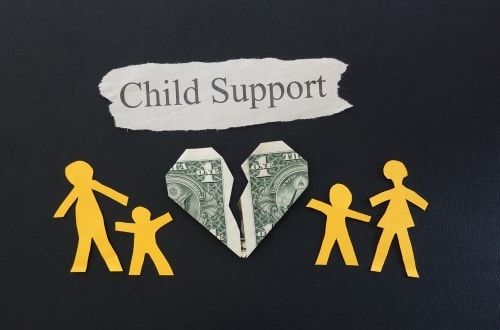
People think it is automatic – you have other children and so you get a hardship for those kids in calculating child support, or you get at least ½ a hardship per child; however, there is nothing automatic about it.
Hardship is discretionary in child support cases, which means that findings need to be made as to reason and when appropriate the court needs to give a duration.
CONTACT US
Claiming Hardship for Child Support in California
Family Code section 4071 deals with financial hardships. Subsection (a) states that:
“Circumstances evidencing hardship include the following:
(1) Extraordinary health expenses for which the parent is financially responsible, and uninsured catastrophic losses.
(2) The minimum basic living expenses of either parent’s natural or adopted children for whom the parent has the obligation to support from other marriages or relationships who reside with the parent. The court on its own motion or on the request of a party, may allow these income deductions as necessary to accommodate these expenses after making the deductions allowable under paragraph (1).”
The maximum allowed hardship will be the amount of child support allowed under the guideline based on the obligor’s income. So if guideline comes to $300/m, one full hardship will be $300 and ½ a hardship will be $150. FC section 4071(b).
The courts give these deductions so automatically that they have forgotten the Code mandates that they MUST make findings.
“(a) If a deduction for hardship expenses is allowed, the court shall do both of the following: (1) State the reasons supporting the deduction in writing or on the record. (2) Document the amount of the deduction and the underlying facts and circumstances. (b) Whenever possible, the court shall specify the duration of the deduction.”
– Family Code section 4072
Note that case law has already decided that siblings, parents, and step-children are not entitled to hardship deductions. The way to analyze is to look at the definition of 4071(a)(1): “for which the parent is financially responsible.” As much as a parent may be morally responsible for a sibling, parent, or step-child, he/she is not legally responsible for that person.
Related Reading:
Child Support Hardship for Obligees
Under Family Code section 4071(1), custodial parents who receive child support—also called “obligees”—can request a hardship if their child or children incur an extraordinary health expense, or if there is a catastrophic loss.
Child Support Hardship for Obligors
Under Family Code section 4071(2), non-custodial parents who have been ordered to pay child support—also known as “obligors”—can request a hardship in the event of increased living expenses for their children, including children from other relationships.
For example, let’s say custodial mother’s ex-husband has another child with his new wife. This causes his out-of-pocket expenses to increase beyond the amount outlined in California’s child support guidelines, causing him financial hardship if he is required to continue paying the same amount of child support to his ex-wife each month. In such a situation, the Court may grant the man a hardship.
Discuss Your Case with an Attorney Today!
Ultimately whether you are entitled to a hardship or not is a factual determination. But much of that determination depends on how your facts are presented to the judicial officer. You want an attorney on your side that (1) knows your facts, (2) knows how to present them, and (3) knows the judicial officers’ likes and dislikes.
For best results, go to Family Court with an experienced legal team by your side. Contact us at the Edgar & Dow for assistance. We handle cases in Riverside, Temecula, Anaheim, Palm Desert, and throughout San Bernardino and Southern California.
Call (888) 251-9618 for a free initial consultation!



